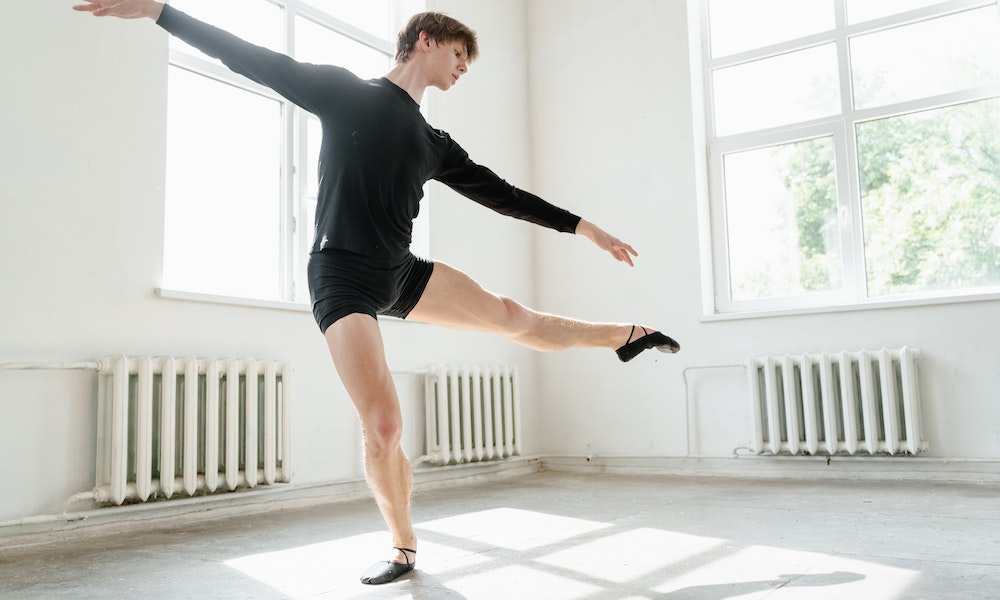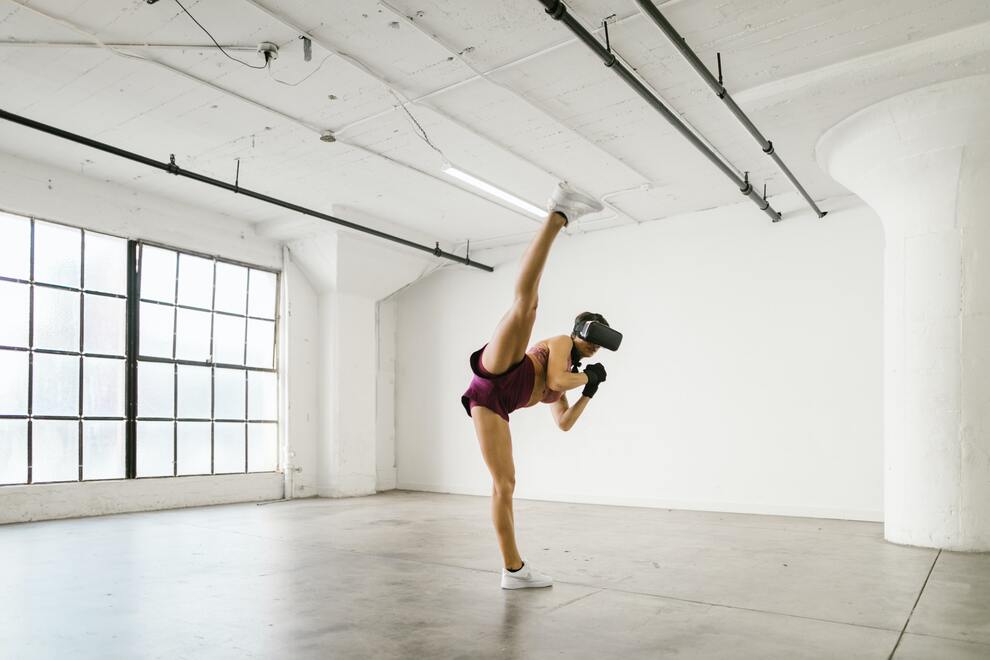Have you ever dreamed of doing a marathon? Thinking about getting into running or upping your current training goals so you can crush a marathon in 2022? We have all the tips, tricks, and resources you’ll need to make this a fun and rewarding mission. (And, to be honest, if you’re just feeling like running away from 2021, we get that too.)
Running goals are a great way to motivate yourself in the new year. Not only is running great for your body, but it also allows you to break down one big goal, like completing a marathon, into much smaller goals so that your accomplishments are measurable and build towards your ultimate goal.
So, lace up and, let’s hit the roads, paths, and trails to get you ready to crush your New Year’s resolution!
Why Running?

If you’re new to running, welcome to a very addictive hobby. And, if you’re an experienced runner and planning to run your first marathon, congrats! Running is a great way to get and stay fit, strengthen your body and keep your mind healthy too.
Running has benefits that literally start during your first run and keep compounding over days, weeks, months, and years. What a fantastic way to motivate yourself to keep going—when you see positive results right from the first step. It only gets better from there, it will be easy to keep going and definitely hard to stop once you are in the full stride of things. First, and potentially the most important detail you will be interested to know is that running provides your brain with a massive hit of exercise-related hormones that elevate your mood and state of mind.
Running is a great way to practice self-care and look out for your mental health. Oh, and did we mention it comes with a raft of other gains? Running is an all-star, from building muscle tone and maintaining a healthy weight to lowering your risk of heart disease and cancer.
Before you race off to your running destiny, make sure you check in with your doctor. They will consider that running is a high-impact activity and make sure that your bones, joints, and cardiovascular system can handle it.
Why Run a Marathon?
Even for avid runners, marathon runners can seem like punishment-loving oddballs. So, why are marathon runners so ardently passionate about their sport?
Completing a marathon is a considerable achievement that most people will never experience. There’s a heady feeling of being in that exclusive club and a sense of accomplishment that is hard to give up once you’ve had it. You’ll float on air (once your feet recover) for weeks after your first finish and the excitement only builds from there as you consider what your next marathon will be.
Training for a marathon can be a great way to ensure that you have a consistent means to feel success and validation in your life. Many things are outside our control, but running is something that you can do and keep doing consistently, no matter what other curveballs life throws at you.
Before Your Training Starts

Running a marathon is a big goal, so it’s especially important to follow the golden rules of goal setting—plan ahead, set milestones, and be realistic. Being ready to run a marathon doesn’t start and end with your day-to-day runs. It means that your nutrition, rhythm, sleep, and gear are all dialed in. These details can take a decent amount of time to figure out, test other options, and settle on what works best for you, so planning ahead is critical.
One of the pitfalls that new runners or first-time marathon runners can fall into is overtraining. This can be caused by an abundance of enthusiasm or starting training too close to your marathon date and feeling rushed. Whatever the reason, it has been the downfall of many passionate athletes. To avoid getting caught in this trap, start small. Even if your fitness level is high overall, training for a marathon is tough on your body if it’s not done correctly.
A marathon is 26.2 miles. Why do you ask? It’s a long story, but essentially the reason is that that’s the distance that was decided on in 1921, and we’ve never looked back. The great thing about running, though, is that you don’t have to train only to reach your end goal—there are a lot of landmarks along the way. When you’re getting started with running, register for a 5k, 10k, or 15k run to get familiar with the race environment and give yourself a taste of how sweet that ultimate victory will be.
Game Plan
Schedule your runs – plan for three runs per week to start and build to five. How long these runs are will depend on your running experience and skill level. You don’t need to jump in with three-hour-long runs per week. Start small, and build from there by increasing up to ten percent per week.
Stretch Before and After – Stretching before you run lengthens your muscles and lets your body slowly warm up. This is the same idea as letting your car warm up in the winter—if it’s freezing outside, the engine is cold, the oil is thick, and forcing it to drive is unnecessary wear and tear. Stretching after helps move the lactic acid out of your muscles and helps to prevent injury. Both are equally important for different reasons, so “I stretched before my run, I don’t need to after.” or vice versa doesn’t fly!
Nutrition – The importance of this can’t be overstated. Successfully running a marathon requires all of your systems to be dialed in. If your nutrition is optimized well before your race, it could be a reason you don’t complete your goal. Likewise, if you’re finding that you’re hitting a plateau in your training, tweaking your nutrition can be just the thing to get you over the hump.
Hydration – If there’s one thing that’s as or more important than nutrition to runners, it’s hydration. Entire companies have been founded with the goal of providing a more competitive edge to runners by optimizing their hydration—it’s that important. Check out this great article from Runner’s World for more details and recommendations.
Sleeping – Your sleep schedule might not seem like a super important part of marathon training at first, but trust us, once you get into your training regime, you’ll appreciate every moment of quality sleep. Running a marathon is a big thing to ask your body to do, and one of the ways that your body recovers is by sleeping. Rest days and proper nutrition are important, but a healthy sleep schedule will let your body recover so you can stay strong. Sleeping while you train for your marathon is different than having a healthy regular sleep schedule, so make sure you’re following a routine!
If you start to feel like this is too much to go at it alone there are companies that help with the training like Sunrise Running Company. Remember that it is always a good thing to look for support when we need it.
Training Equipment at Home

While everyone trains differently, some common items will help you along your training journey.
- Treadmill – not every distance runner has a treadmill at home, but it can be helpful if the weather in your area isn’t conducive to year-round training.
- Hydration back or belt – as you build to longer runs, having access to water will be critical. It’s a good idea to get used to this right from the start, so you do not have to introduce new habits later in your training.
- Snacks for energy – Spend some time working out which snacks sit well in your system and provide you with some much-needed energy during your runs. Lookup a few resources to find what works for you and to help you figure out what works for you.
- Running shoes – choosing the right shoes can be a game-changer for runners. Your shoes are the single most crucial piece of gear you’ll have as a runner, so make sure that you’re setting yourself up for success by spending time researching and trying on running shoes. Most stores that sell runners are very adept at helping you to choose the right shoe for you based on your posture, heel strike, pronation of your foot, etc. Don’t pass up on that firsthand knowledge!
- Clothes – If you’re just getting into running, this one might sound obvious, but just wait. The science behind runners’ clothing is vast, and once you get into it, you’ll see how individual and specific your clothing requirements become. The one thing that almost all runners will agree on is this—no cotton. Stick to performance materials that will wick sweat, reduce chafing, and keep you comfortable for longer.
- Use a fitness tracker – The market for sports tech is seemingly unlimited these days, and this gives you the luxury of choosing what kind of tracker works best for you. You might be looking at a watch like a FitBit, Garmin, or Apple Watch. A dedicated device might not be your thing, so don’t worry – phone apps like Strava and Trackmyrun have your back.
Taper Your Training Before Your Marathon

Tapering is an essential element of marathon training that requires control and awareness of your training routine. In the running, tapering refers to the practice of scaling back your training activities in the three weeks before your race. Be careful not to do any long-distance runs during this time, rest more than usual, and as you get within a few days of your race, consider active rest days instead of training days.
During Your Marathon
You’ve done it. You’re here. You have your race pack in hand, you’re controlling your nerves, the start buzzer sounds, and you’re off on your first marathon. Now what?
- Don’t let your nerves change your pace. You’ve trained for this. You know what your optimal times are. Stick to that, and don’t let the excitement of the day get to you.
- Don’t try anything new. Now is not the time for changing up your system. You’ve trained for this. Trust your process. You very well might make observations during your race that will change the way you’ll prepare for your next one, but this is not the moment to put any of that into play. Make a mental note and keep on track.
- Remember to take time to enjoy! First and foremost, running is about health and happiness. You made it to the big show, so enjoy your time there, don’t be too hard on yourself, and bask in the feeling of getting to your goal.
Post-Race Advice
Once your marathon race is done, it’s time to give your body some well-earned rest. Reflect and be proud of yourself for getting there no matter your time. You set a goal, worked hard for it, and that in itself is something to feel accomplished around.
Make sure to rest for at least one week, with the two days following the race essentially being couch days. After that, get into some active recovery when your body tells you it’s ready.
If you know a marathon runner, you might have noticed that they have a crazy amount of routines and systems in their life that are devoted to maintaining their running ability. That’s because there’s so much to keep track of when you’re training for a marathon that routines and systems are the only way most of us can keep track of our sleep, nutrition, run schedule, improvements, etc. The great news is that now you have all the tools to get you going on the road to your first marathon, so enjoy the journey!




